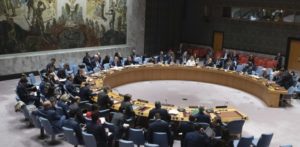Jakarta, NINA — Bank Indonesia (BI) will continue to take appropriate actions to create and maintain economic stability amid the growing global challenges.
The global challenges include the Federal Funds Rate (FFR) hike cycle in the United States, the rising international oil price, build-up of geopolitical risks linked to the escalating tension in the US-China trade war, and US withdrawal of the Iran nuclear deal, which has prompted broad US appreciation against global currencies, including the Rupiah, Antara News reported, citing. BI Governor Agus Martowardojo in a statement here on Tuesday.
Also Read: Saudi Arabia Wins Bid to Host World Expo 2030
As of May 9, 2018, the rupiah had depreciated 1.2 percent (month to date), while the Thai baht fell 1.76 percent and the Turkish lira by 5.27 percent. Thus far in 2018, the rupiah has fallen 3.67 percent (ytd), the Philippine peso by 4.04 percent, Indian rupee by 5.6 percent, Brazilian real by 7.9 percent, Russian ruble by 8.84 percent, and the Turkish lira by 11.42 percent.
Rupiah depreciation over the past few weeks is no longer consonant with current economic fundamentals in Indonesia.citig
Therefore, considering the large potential of global challenges that could disrupt national economic growth balance in Indonesia in the medium-long term, BI will explicitly and consistently orient and prioritize monetary policy towards creating stability.
To that end, BI currently has adequate space to adjust the BI 7-Day (Reverse) Repo Rate. The policy response will be executed consistently and pre-emptively to ensure sustained stability.
Also Read: 148 Products from Indonesia Promoted at Sarawat Superstore Jeddah
On the other hand, BI will also consistently support effective and efficient market mechanisms, thus maintaining sufficient liquidity in the foreign exchange market and money market.
Monetary operations in the foreign exchange market will still be focused on minimizing exchange rate volatility in order to maintain market confidence.
Monetary operations
Meanwhile, monetary operations in the money market will aim to ensure adequate rupiah liquidity and maintain stable market interest rates within a corridor that reflects the monetary policy stance pursued by BI.
Also Read: Packaging Industry Supports Halal Ecosystem
Furthermore, BI will continue to strengthen collaborative efforts with other relevant authorities and the financial industry, primarily through the respective associations, in order to deepen the financial markets and make price discovery more efficient, including by adding new instrument variations, reinforcing financial market infrastructure, and increasing the credibility of the market reference rate.
Additionally, BI will also strengthen coordination with the government to maintain inflation within the target corridor and ensure effective structural reforms to bolster the structure of the current account as well as capital and financial account, while issuing various other structural policies to enhance national economic competitiveness. . (T/RS5/RS1)
Mi’raj Islamic News Agency (MINA)
Also Read: Indonesia-Japan Agree on Energy Transition Cooperation



































 Mina Indonesia
Mina Indonesia Mina Arabic
Mina Arabic